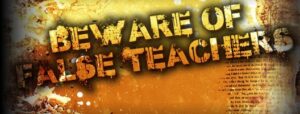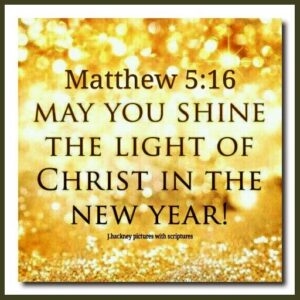
This article is a departure from my usual fodder here on Real Dark News, so, I hope you will all indulge me just this once. Tom and I were discussing the power of music on today’s episode of Through the Black. At one point, Tom was comparing the psalms to modern blues ditties. He even read from Psalm 13, which is, incredibly, the very first psalm I ever wrote for slide guitar!
I wish we could hear the Psalms through the ears of those who first heard them. King David was not some sultry Vegas crooner. He was a warrior who was more than comfortable in his un-politically correct, hyper-macho, masculine skin. This is, after all, the guy who went running full speed at a Nephilim giant with nothing but sandals and a sling shot; and I am pretty sure his poetry was probably the heavy metal hymnal of his day.
The jarring honesty of his lyrics, his rent heart, his anger, his confusion, coupled with a paradoxical desire for vengeance upon his enemies intertwined with his audacity to fully vent his conflicted heart in all its sin and brokenness before the throne of the Most High God—this stuff is as controversial as it gets, folks. No doubt had there been a Tipper Gorenstein around in David’s day, his album would have been slapped with the coveted parental advisory sticker.
And although he did not write it, I have always found Psalm 88 to be the closest thing to “Fade to Black” found in the Bible. The psalm was written by Heman, (No, not He-man the Master of the Universe). Heman the Ezrahite. And this guy was in desperate need of some Ritalin—we are talking beyond despondency here. In fact, because his psalm doesn’t have a “fairy tale ending,” some scholars aren’t even comfortable with it being included in the canon of psalms at all!
Let’s take a look at Heman’s lyrics.
PSALM 88
O lord God of my salvation, I have cried day and night before thee:
Let my prayer come before thee: incline thine ear unto my cry;
For my soul is full of troubles: and my life draweth nigh unto the grave.
I am counted with them that go down into the pit: I am as a man that hath no strength: Free among the dead, like the slain that lie in the grave, whom thou rememberest no more: and they are cut off from thy hand. Thou hast laid me in the lowest pit, in darkness, in the deeps.
Thy wrath lieth hard upon me, and thou hast afflicted me with all thy waves. Selah. Thou hast put away mine acquaintance far from me; thou hast made me an abomination unto them: I am shut up, and I cannot come forth. Mine eye mourneth by reason of affliction: Lord, I have called daily upon thee, I have stretched out my hands unto thee.
Wilt thou shew wonders to the dead? shall the dead arise and praise thee? Selah. Shall thy lovingkindness be declared in the grave? or thy faithfulness in destruction? Shall thy wonders be known in the dark? and thy righteousness in the land of forgetfulness?
But unto thee have I cried, O Lord; and in the morning shall my prayer prevent thee. Lord, why castest thou off my soul? why hidest thou thy face from me? I am afflicted and ready to die from my youth up: while I suffer thy terrors I am distracted.
Thy fierce wrath goeth over me; thy terrors have cut me off. They came round about me daily like water; they compassed me about together. Lover and friend hast thou put far from me, and mine acquaintance into darkness.
Bet that guy was a blast at parties, right?
I tell ya, this psalm might not be on anyone’s Top 10 playlist, but for anyone who has ever survived a “sifting as wheat” season or a dark night of the soul—this psalm is a Godsend. It’s the permission slip we need to grieve and heal our way through a period of chastening, loss, or sorrow without that disingenuous “thank you may I have another!” game face the Church tells us is the biblically correct way to endure suffering. In 2013, after my mom died, this psalm became my anthem. I even re-wrote the psalm into a modern form of poetry—the Luc Bat.
The Luc Bat is a form of Vietnamese poetry meaning “six eight.” The 6th and 8th syllables take turns rhyming, creating an internal rhyme scheme rather than the rhymes occurring at the end of every line. The other “rule” of the Luc Bat poetry form is that the very last word of Line 1 must be repeated as the very last word of the poem. I felt the tempo of this poem sounded melancholic—a sort of beautiful chaos—that matched the tone of this lament.
Psalm 88 – Luc Bat
Never ceasing anguish;
pain and sorrow languish. My soul
shrieks loudly and my whole
life draws near to Sheol. The dead
are my allies. My bed
is made of darkness. Dread covers
me like a shroud – hovers
like jealousy when lovers spar.
Your wrath, it burns to char,
leaving a grotesque scar behind.
I can no longer find
friends whose hearts once entwined as one,
who once loved, but now shun –
they turn around and run in fear.
Every day, I draw near
and pray that you will hear my cries.
But once a sinner dies,
can one departed rise to praise?
Like in his former days?
Can deaf ears hear the phrase: “I save –
I raise life from the grave!”
And can mere darkness stave what’s bright,
or the grip of death smite
his will? In morning light, I cry,
“Lord, do not let me die!
Do not let my soul fly away!
Do not hide when I pray!”
From my very first day, the Pale
Rider’s hooves did assail.
melting armor and mail to dross,
attempting to emboss
an emblem of my loss and shame.
Not even death can tame
your wrath once its hot flame ignites!
Once the tempest incites
wild waters and excites the sea
with waves surround me.
You caused my friends to flee, to leave.
My soul, left to bereave,
but will gladly receive – anguish.
I even began to write an article several years ago comparing Heman to Eminem by contrasting the lyrics to Psalm 88 with Eminem’s song, “My Mom.” The heart and the art of both men bear a striking resemblance. I didn’t get very far because I felt the Church wouldn’t be able to handle the fact that the Psalms are, in actuality, far more like gangsta rap than they are like sappy Hallmark movie love songs, so I shelved the project. For another day, perhaps.
The fact is, for anyone pursuing holiness while living in the midst of Babylon—the heart will always be conflicted—bathed in a dizzying kaleidoscope of wrenching contradictions—a constant tug of war between conformity to God and conformity to the world.
Solomon, the wisest man to ever live once wrote, “I said in my heart, ‘Come now, I will test you with pleasure; enjoy yourself.’ I surrounded myself with what the world offers.” Thousands of years later, Johnny Cash wrote, “I went out there in search of experience; to taste and to touch, and to feel’s as much as a man can before he repents” (The Wanderer). Decades later, Eminem (Lose Yourself) wrote, “His soul’s escaping through this hole that is gaping; this world is mine for the taking; make me king. As we move toward a New World Order—a normal life is boring—but superstardom’s close to post-mortem….”
Heman the Ezrahite, King Solomon, Johnny Cash, Eminem—men of wealth and power throughout the ages—all indulged in all the world had to offer, and all came to the same conclusion. Heman concluded, “Thy terrors have cut me off.” Solomon concluded, “All is vanity.” Johnny Cash concluded, “Yeah, I left with nothing.” And Eminem concluded, “I’ve been chewed up and spit out and booed off stage.”
What do we invest our lives in? Pursuing our own 15-minutes of fleeting fame? Or inheriting an eternity to proclaim the never-ending fame of our Messiah? In the words of Eminem, “The moment, you own it, you better never let it go. You only get one shot. Do not miss your chance.”
But if it is disagreeable in your sight to serve the LORD, choose for yourselves today whom you will serve: whether the gods which your fathers served, which were beyond the Euphrates River, or the gods of the Amorites in whose land you are living; but as for me and my house, we will serve the LORD.”
Joshua 24:15
For more of VeeJay’s Psalm poetry, check out Harps Unhung.


